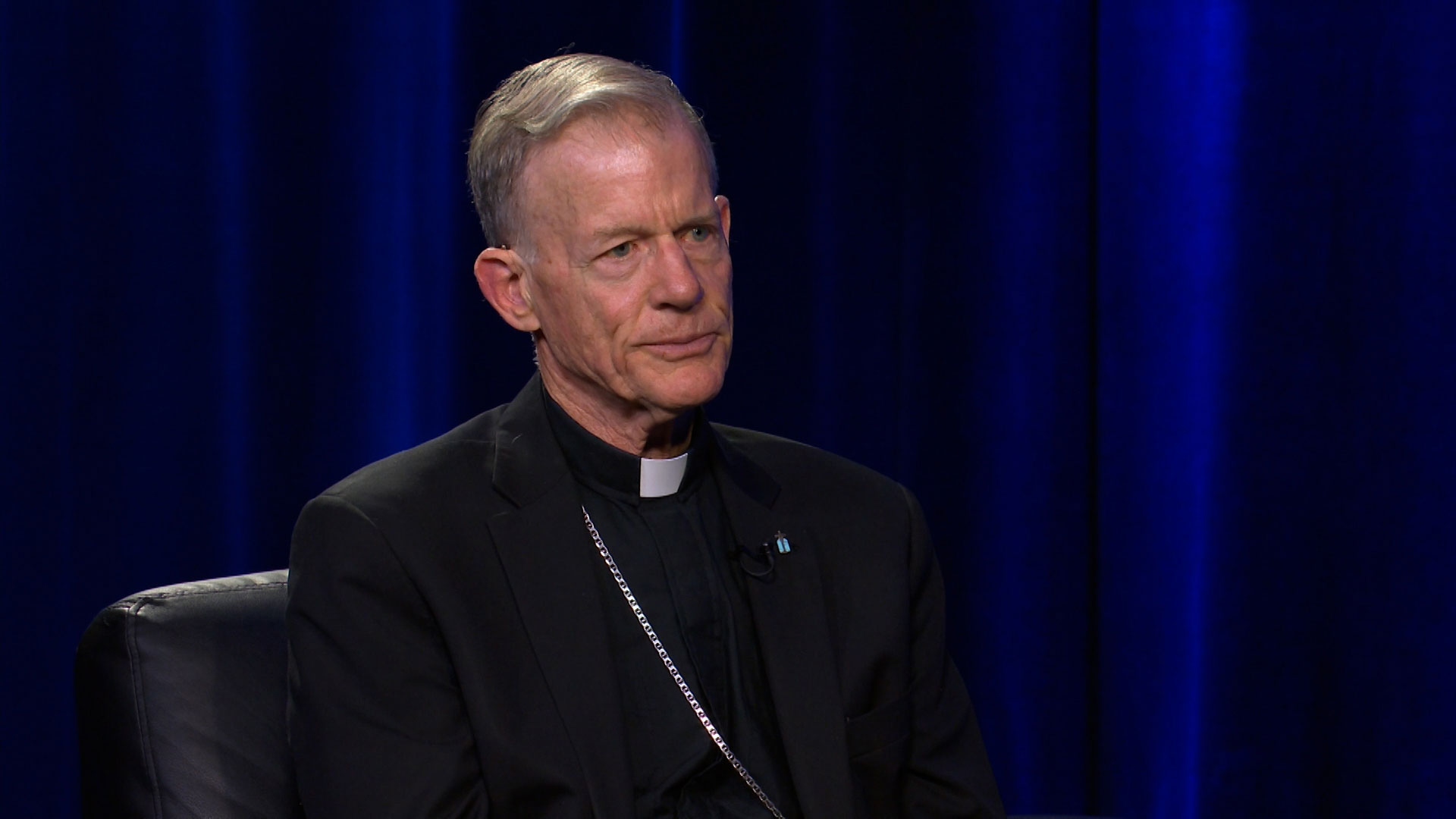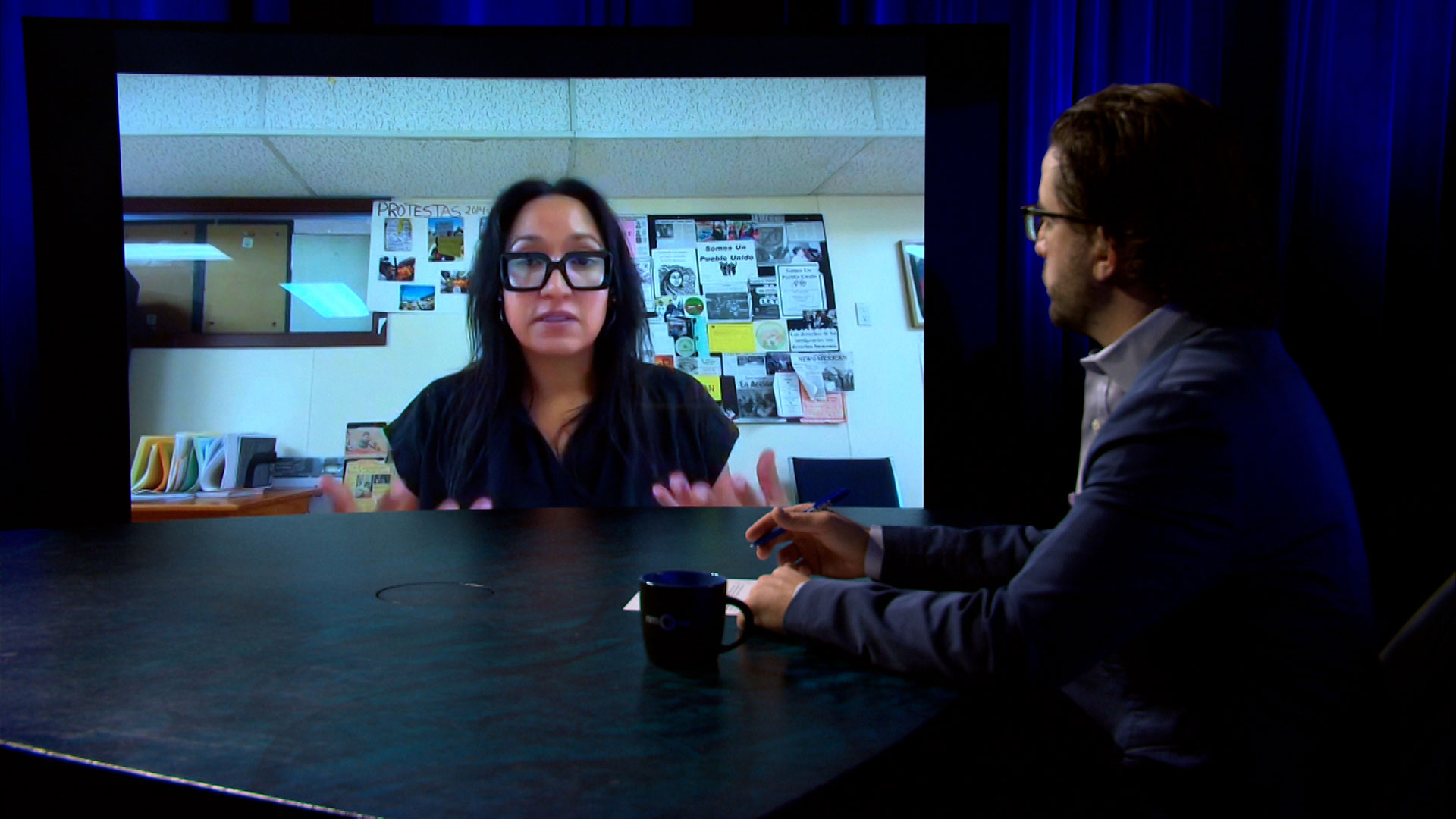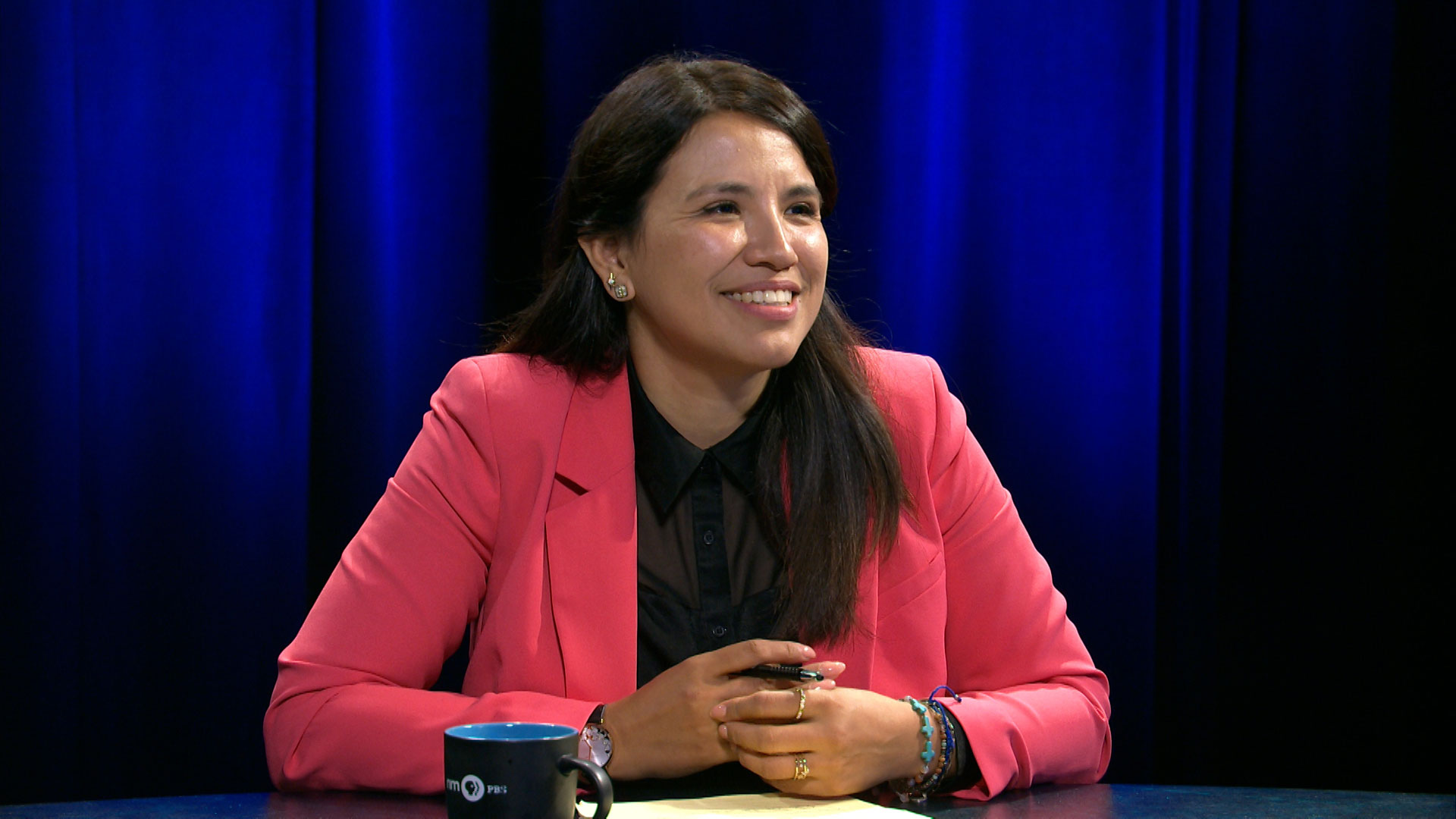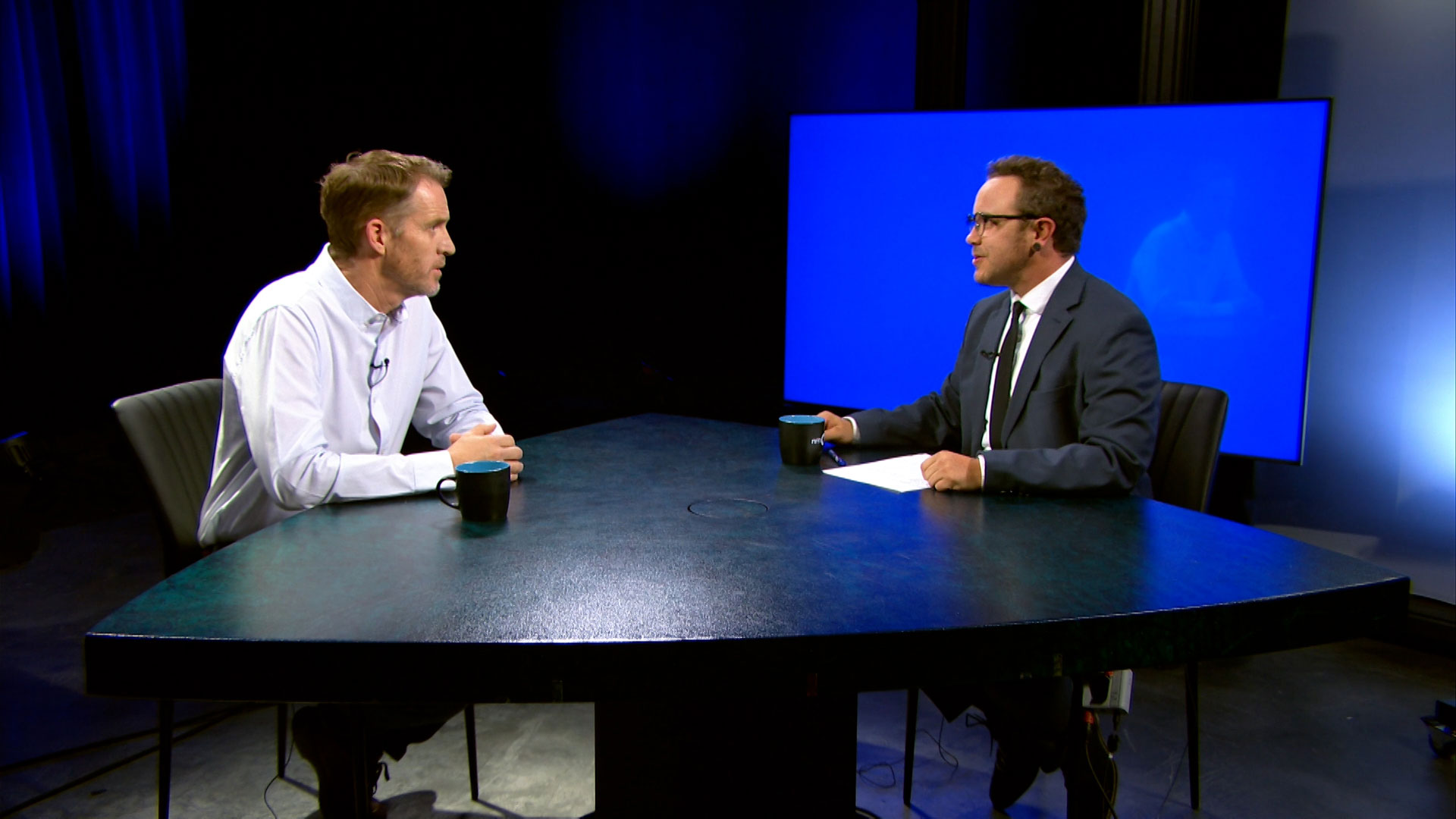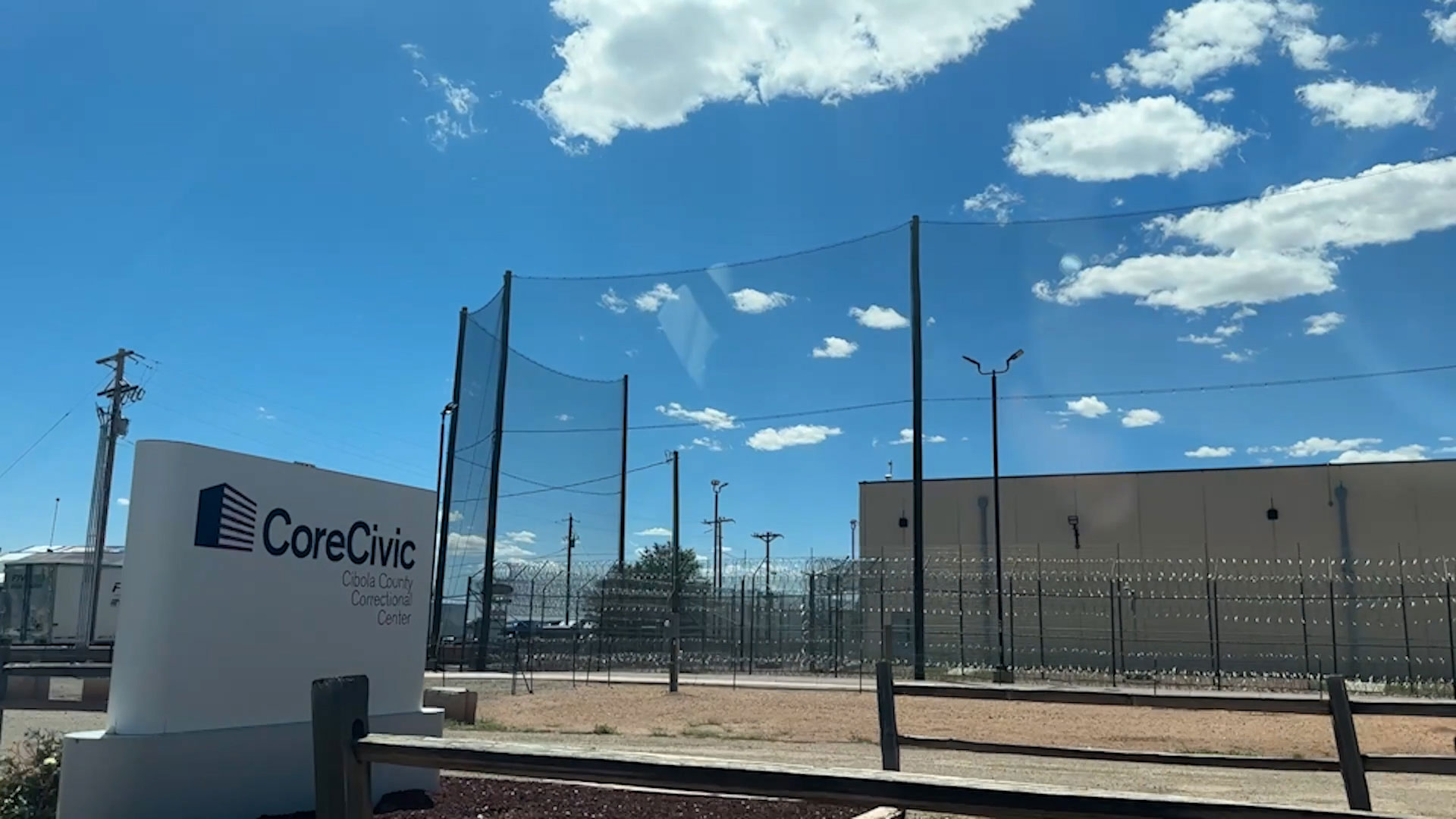Immigration Enforcement in New Mexico: What Role (If Any) Should State and Local Governments Play?
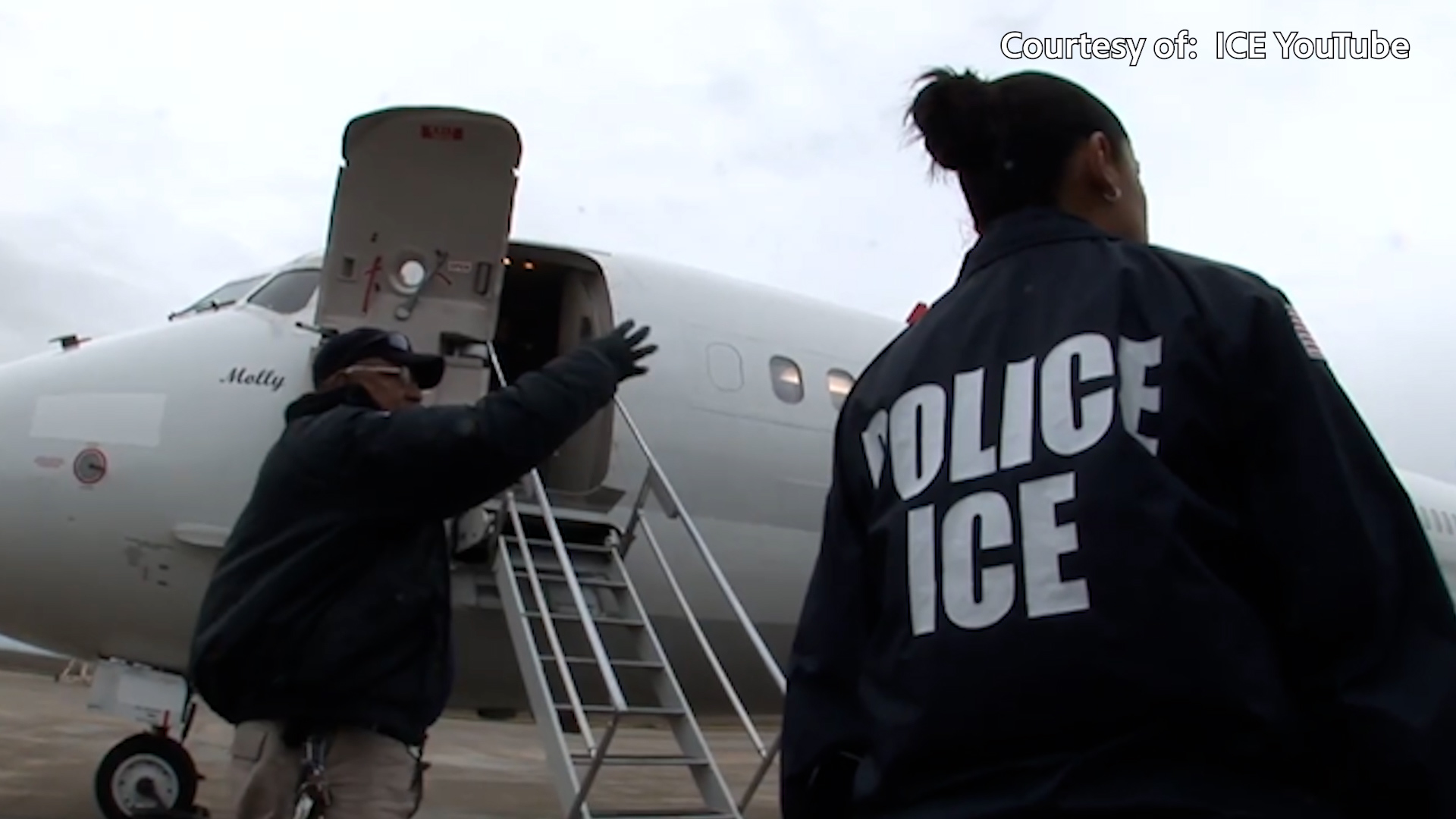
You’ve likely seen videos from across the country of Immigration and Customs Enforcement (ICE) agents, clad in masks, detaining people in public, often forcibly. One such video taken at an Albuquerque Walmart a few weeks ago, where officers tased delivery shopper Deivi Jose Molina-Peña, prompted protests.
Soon after, Mayor Tim Keller issued an executive order reaffirming and expanding the city’s 2018 Immigrant-Friendly Resolution. The order includes new provisions like a requirement that city departments report ICE activity in their facilities and a path for city police to confirm ICE activity when the public inquires.
“Whether it is ICE agents popping out of vans, wearing masks, rounding up people who are not even immigrants, who are Native Americans, who are legally here in the city…This has nothing to do with immigration policy. This is more like terror,” Keller said at the signing.
By the mayor’s side that day was State Senator Cindy Nava (D-Bernalillo), one of the first former DACA (Deferred Action for Childhood Arrivals) recipients to hold elected office anywhere in the country. Growing up undocumented means Nava brings a unique perspective to Roundhouse debates over state immigration policy.
“As lawmakers, you really have to be knowledgeable about the issues and things that you’re advocating for,” she tells me in an interview on this week’s show. “But…you can’t pretend that you understand in the same form that someone who has lived those issues has.”
She recalls being undocumented and watching politicians debate immigration reform, setting it down because they couldn’t get it just right.
“I remember sitting there in agony with my family saying, ‘Goodness. OK, so they’re not thinking about the people who are actually suffering, who actually need a social security [number] to be able to go and just work decently, to be able to have health care access.”
Nava walks us through state proposals that failed this year to prohibit state and local agencies from using public resources to enforce federal immigration law and block local governments from contracting with ICE and private prison companies to detain immigrants. She also looks ahead to the next session and explains why she backs Mayor Keller’s approach.
We also hear from conservative Albuquerque City Councilor Dan Lewis, who not only opposes Keller’s order, calling it “political theater” and “smoke and mirrors,” but his entire tenure as mayor.
“We have an extremely weak mayor who has no interest in improving the public safety of this city,” Lewis, who lost to Keller in the 2017 mayoral race, tells me on this week’s show.
Lewis consistently steered the conversation about immigration toward crime, drugs and public safety, despite research that shows immigrants without legal status commit violent and drug crimes at less than half the rate of U.S.-born citizens. I pushed him on his reframing of the conversation toward immigrants who are accused of crimes, and criminal activity unrelated to immigrants, asking whether he was insinuating that immigrants create more crime in the city.
“No. I didn’t say that at all. I mean, you’re making some questions up that I’m not sure what you’re getting at,” he said.
When I clarified, he said there’s “certainly room for reform nationwide in illegal immigrant law and enforcement,” but a solution available at the city level is to “Cooperate [with ICE] in some very simple ways that protect the civil rights of everybody who lives in our city and at the same time have a benefit to public safety in our city.”
Lewis says he’d like to see the city allow ICE access to the Prisoner Transport Center, which was prohibited under the 2018 Immigrant-Friendly Resolution, to target undocumented people accused of crimes.
We also get out of the policy realm and hear from those involved in the personal, day-to-day stories of people impacted by federal changes in immigration enforcement. NMiF Reporter Cailley Chella introduces us to detainees at the immigration prison in Cibola County and the volunteers supporting them. We also speak with community leaders from Somos Un Pueblo Unido to the Catholic Church who are working for and alongside immigrants in New Mexico every day.
We hope you’ll join us for a look at immigration policy and enforcement in New Mexico tonight at 7 p.m. on NMPBS, channel 5.1, or on-demand on the PBS app and New Mexico in Focus Youtube channel.
-Nash Jones, Host
-
Immigration Enforcement in New Mexico: What Role (If Any) Should State and Local Governments Play?
You’ve likely seen videos from across the country of Immigration and Customs Enforcement (ICE) agents, clad in masks, detaining people…
-
Santa Fe Archbishop on Treating Immigrants with Compassion
8.1.25 – In July, Catholic leaders in San Bernardino, California encouraged their immigrant parishioners to skip mass if they fear…
-
Somos Un Pueblo Unido Helps Immigrants Under Trump Crackdown
8.1.25 – Marcela Diaz is the founding executive director of Somos Un Pueblo Unido, an immigrant-led workers’ rights organization. Senior…
-
Formerly Undocumented State Senator on Trump’s Immigration Policy
8.1.25 – Elected in 2024, state Sen. Cindy Nava, D-Bernalillo, became one of the first former DACA recipients to hold…
-
ABQ City Councilor Calls for Cooperation with ICE
8.1.25 – In July, Albuquerque Mayor Tim Keller signed an executive order reaffirming and expanding the city’s immigrant-friendly ordinance enacted…
-
Nonprofit Advocates for Asylum Seekers in NM Private Prison
8.1.25 – Cibola County Correctional Center is one of three prisons in New Mexico that holds immigrants for ICE —…


